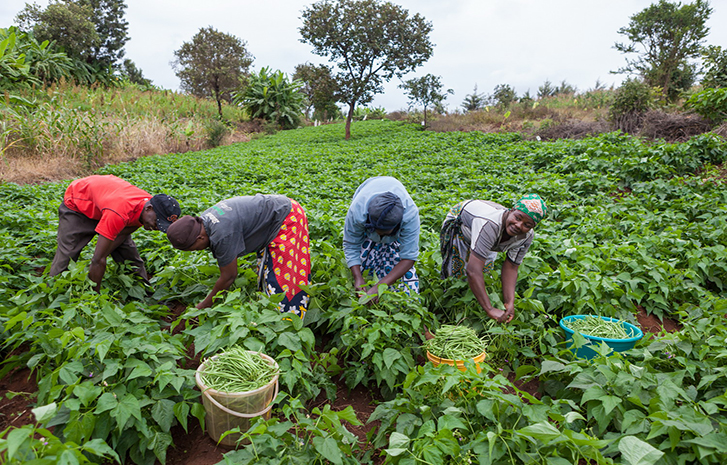Business
EU to invest $1.3 billion in Nigeria’s agric sector, renewable energy

The European Union (EU) has revealed its commitment to financially support the agricultural sector in Nigeria, assisting the African country to diversify its economy away from oil.
Nigeria has been dependent on oil, which accounts for 90% foreign currency earnings, as well as contributing 7% to the country’s gross domestic product. This had heavily impacted the country’s revenue during the meltdown of the oil industry during COVID-19 breakout.
Over the years, Goodluck Jonathan and Muhammadu Buhari administrations had talked about diversifying the economy, to reduce the exposure of the economy to the oil industry.
The EU intends to play a role in this path away from oil by providing $1.3 billion financing for different projects in Nigeria that will include agricultural development, road network, and the renewable energy, reducing dependence on fossil fuel and managing climate change.
Part of the funds will also go to waste-to-energy initiative in Cross River State, as well as combating deforestation and desertification.
Read also: Renewable energy can create 25m direct, 500m indirect jobs in Africa, Asia by 2030 -Report
The capital is part of the “Green Deal” initiative, of the EU, and the funding will run until 2027, covering 57 pronects, according to a report by Reuters on Monday.
“In parallel, the EIB (European Investment Bank) sovereign lending will support the agri-food sector access to markets by financing rural roads, as well as climate adaptation and mitigation efforts.” the EU said.
Join the conversation
Support Ripples Nigeria, hold up solutions journalism
Balanced, fearless journalism driven by data comes at huge financial costs.
As a media platform, we hold leadership accountable and will not trade the right to press freedom and free speech for a piece of cake.
If you like what we do, and are ready to uphold solutions journalism, kindly donate to the Ripples Nigeria cause.
Your support would help to ensure that citizens and institutions continue to have free access to credible and reliable information for societal development.






















